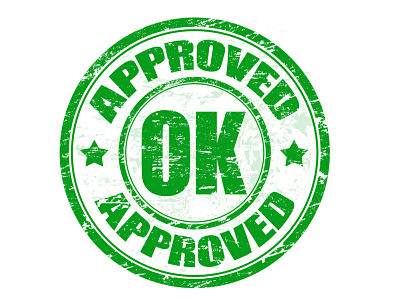Smarter Loans Inc. is not a lender. Smarter.loans is an independent comparison website that provides information on lending and financial companies in Canada. We work hard to give you the information you need to make smarter decisions about a financial company or product that you might be considering. We may receive compensation from companies that we work with for placement of their products or services on our site. While compensation arrangements may affect the order, position or placement of products & companies listed on our website, it does not influence our evaluation of those products. Please do not interpret the order in which products appear on Smarter Loans as an endorsement or recommendation from us. Our website does not feature every loan provider or financial product available in Canada. We try our best to bring you up-to-date, educational information to help you decide the best solution for your individual situation. The information and tools that we provide are free to you and should merely be used as guidance. You should always review the terms, fees, and conditions for any loan or financial product that you are considering.

If you’ve looked into securing a business loan at all, you’ll understand that qualifying is a process. You’re going to need a great business plan, a decent credit score, and knowledge of the criteria of the institutions you plan to apply to. In many cases, you must already be in business and generating sales every month to be eligible for financing.
The first step to qualifying for a business loan is giving your credit scores some TLC. Both your personal and business credit scores need to prove that you are someone who can be trusted with a loan. If your business is new and you don’t yet have much of a credit history, your personal credit score is essential to qualifying for a business loan. If you’ve been an established business for a fair amount of time and want to take a look at how your business credit score is doing, check out Equifax or Experian. If your credit score (be it business or personal) needs some improvement, keep in mind that the score is basically made up of three main parts. How long you’ve had credit makes up roughly 15%, but isn’t something you can do much to change. However, the amounts you’ve owed in the past and any debt you have make up roughly 30%, and this is absolutely something you can work to improve (NerdWallet). Paying your bills on time and paying off any debts you’ve acquired in a timely manner is obviously crucial—this is what shows the lender how responsible you are in managing your money. Finally, 35% of your score is based on your payment history. Unfortunately, if you’ve had problems with making timely payments in the past, it’s going to take some time to improve this factor of your score. If you need more advice on how to work with bad credit, take a look at this.
Trying to speak with a lender without knowing their minimum qualifications is a waste of both their time and yours. Lenders tend to have minimum qualifications that pertain to credit score, annual revenue, and years in business. Different institutions will accept different levels of business. At this point it’s important to understand that you must be current on any past loans or mortgages, and that any decent lending institution will frown on past bankruptcies. Make sure that you’ve thoroughly researched any institution you plan on applying to, so that you’re fully prepared to answer the questions that most concern them.
Now that you’ve dealt with your credit score and figured out which institutions are the best bets for you, it’s time to get your paperwork together. You’re going to need financial and legal statements, such as tax returns, personal and business bank statements, business licenses, etc. Each institution should have a list of the documents they require. Getting these together can take some time, and it’s incredibly important that you don’t rush through and make any mistakes. Once you’ve found your documents, it’s down to your business plan. This is everything that you’ve put into your business; your product or services, your marketing strategies, your management team. Your business plan needs to include your past and projected financials and show every reason your business is worth the institution’s money. Your business plan is where you show the lender what your business is made of and where you plan to take it. The final step to qualifying for a business loan is providing collateral. Collateral is something the bank will be able to seize and sell if you are unable to repay your loan, and can be equipment, real estate, or inventory. You may also be asked for a personal guarantee, which means that your personal assets can be used as collateral should your business loan fall through.
After looking over this article, you may feel overwhelmed at the amount of work that goes into qualifying for a business loan. It’s important to understand that preparing to apply for business loans is a time consuming and sometimes frustrating process, but is absolutely worth it in the long run. Ensure that you are 100% prepared to meet with an institution, and that your finances look better than ever. Qualifying for a business loan is the first big step in taking your business further.